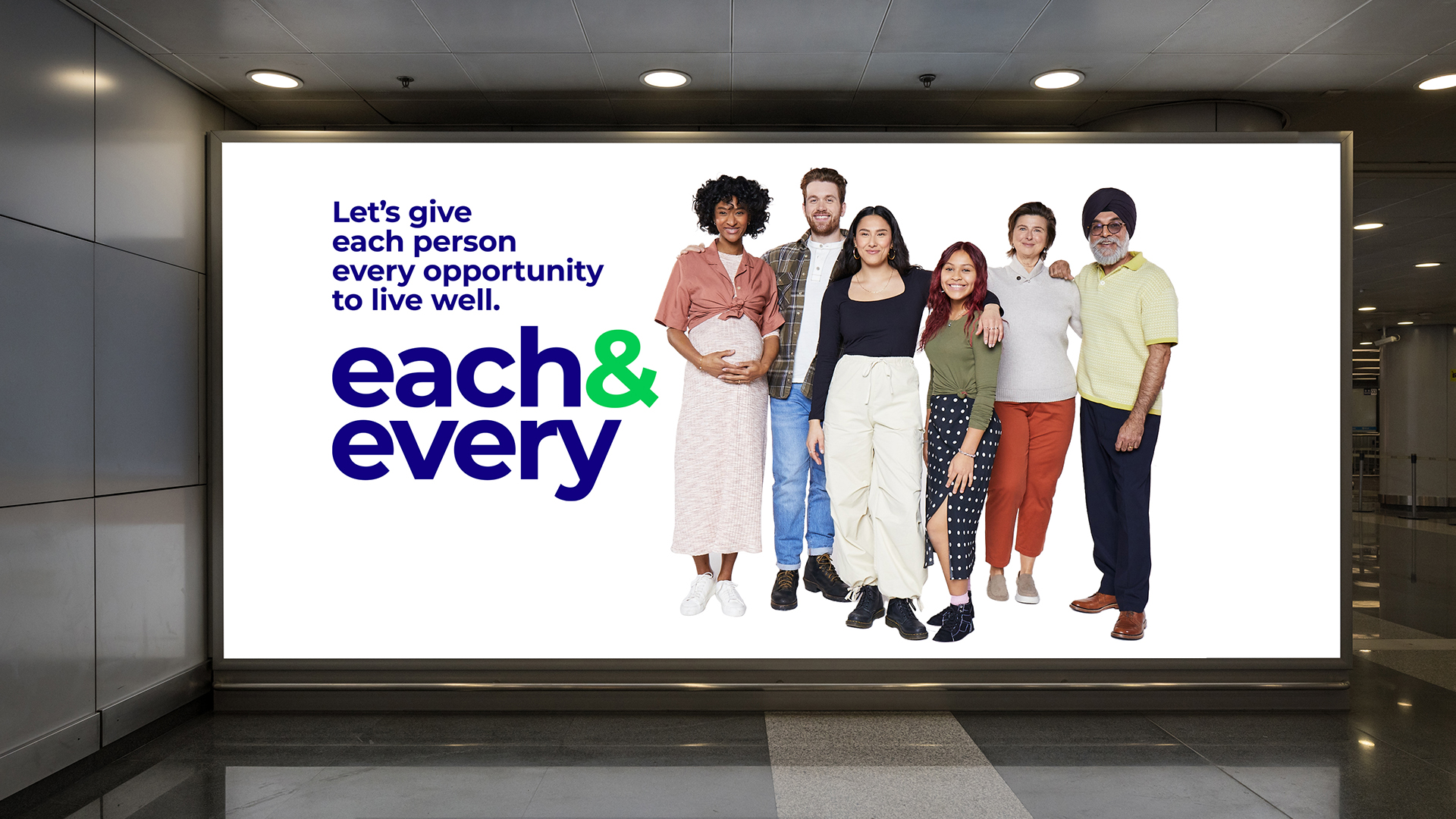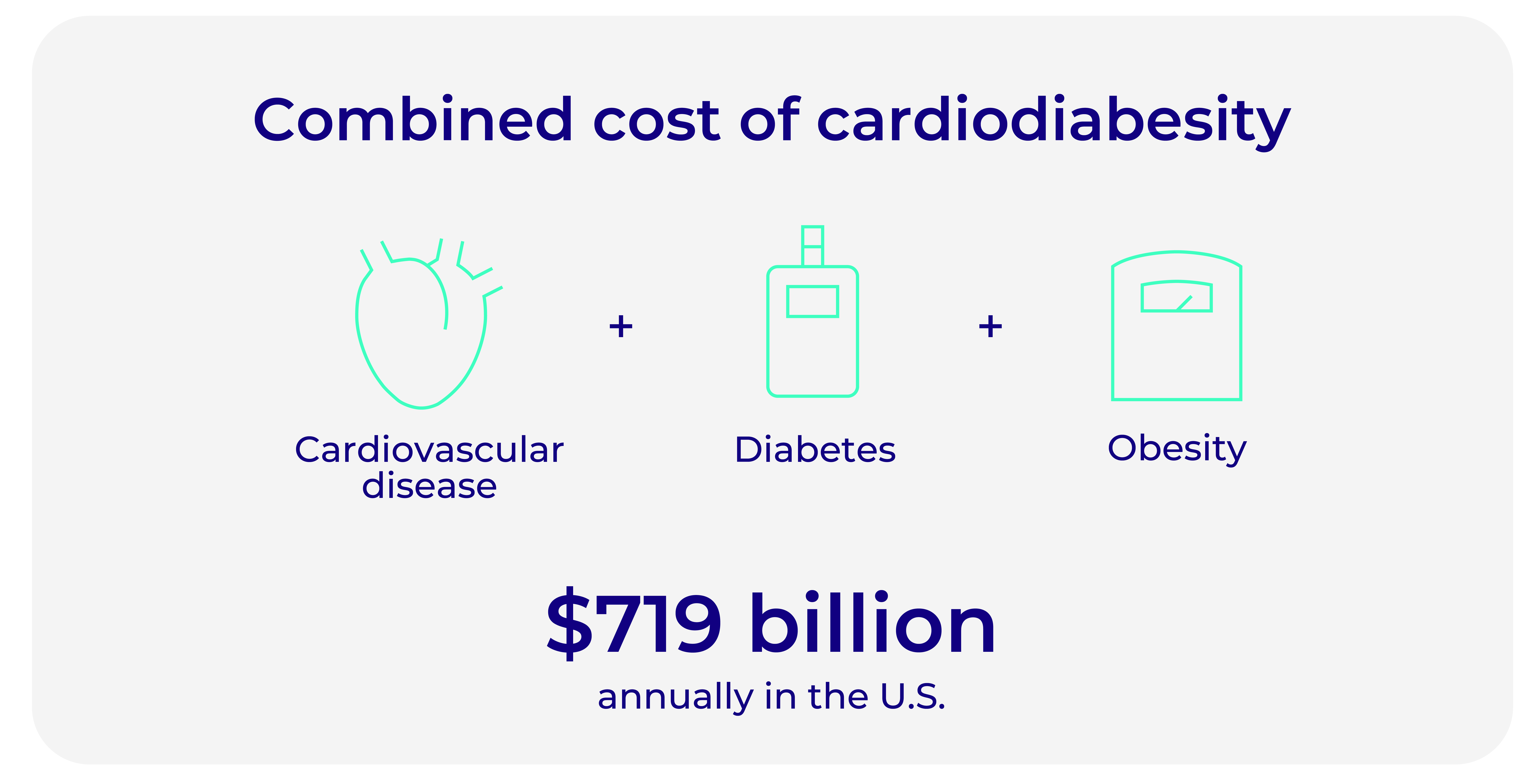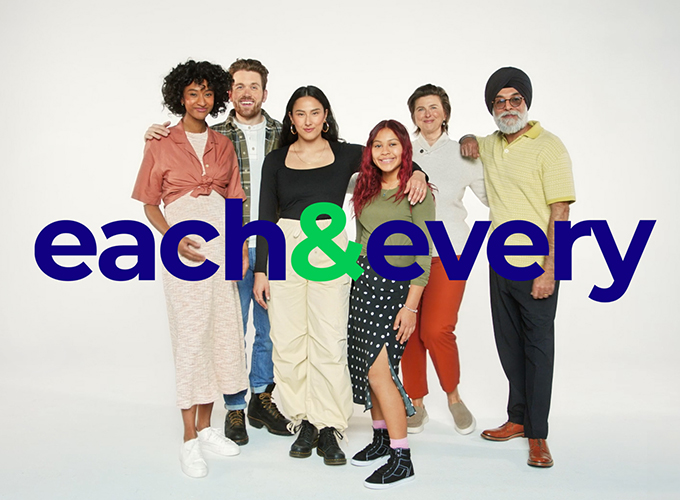
The importance of health equity can’t be understated. A person’s gender, race, education, income, or ZIP code shouldn’t dictate the quality of their care or prevent them from achieving their optimal health and vitality. And yet, too often it does.
And while The Cigna Group acknowledges our role in transforming today’s health care ecosystem into one that’s well-functioning, sustainable, accessible, and equitable, we also understand that all parts of society – including our clients, customers, and partners – can play a part in ensuring each person every opportunity to live well.
Let’s give each person every opportunity to live well
Closing gaps in care starts from within. For nearly 20 years, The Cigna Group has maintained our health equity commitment and has focused on infusing equitable health care into the core of our businesses – leading to powerful, positive changes.
While we know there’s still much work to be done, we have made good progress to give each person every opportunity to live well by improving access to quality health care and better engagement through our innovative solutions and programs.
“What I am most proud of in our almost 20-year journey to achieve equitable health outcomes are the pathways we have built for individuals to access personalized and inclusive care.” Dr. Charles DeShazer, chief quality & health advocacy officer, The Cigna Group
“Social determinants of health (SDOH) are responsible for 80% of health outcomes while clinical factors only account for 20%. By building programming that recognizes and addresses social drivers of health, we are closing equity gaps.” Dr. DeShazer said.
We live in a world filled with health innovations but recognize that progress isn’t equitably distributed. And the more complex our health care system gets, the higher the likelihood that an individual can get lost in it. In fact, over 50% of Americans feel the health care system is failing to meet their needs.
The Cigna Group is uniquely positioned to change this – through data, our expertise and experience, and our partnerships. We are passionate about this commitment and will continue to go forward. This campaign reaffirms our commitment to health equity with the launch of our new “each&every” campaign – which declares: Let’s give each person every opportunity to live well.
Taking on the most critical health equity challenges
The “each&every” campaign focuses on issues in four critical areas of health equity concerns: mothers and children, cardiodiabesity, healthy aging, and access to health care (especially in rural America).
Across the country, women face challenges that can impact their ability to have healthy pregnancies and healthy babies. Research shows that social determinants play a role in maternal and child health outcomes, which means not all women and children have the same opportunities to live their lives with health, strength, and energy.
With maternal health, we’re seeing significant challenges. The proportion of pregnant woman who receive early and adequate prenatal care is getting worse – in 2021, only 76% of women received adequate prenatal care. The statistics are even worse for African American/Black women at 69%, and 70% of Hispanic/Latina women receiving adequate prenatal care. In addition, a study of Cigna Healthcare customers found that 63% of pregnant women face at least one challenge related to SDOH, which can put expectant mothers at higher risk. We’re also seeing a rise in preterm birth and infant mortality rates, particularly for African American/Black and Hispanic/Latina women – Cigna Healthcare internal claims data shows that in 2021 African American/Black infants had the highest preterm birth rate (7.8%) followed by Hispanics/Latinos (6.7%) and whites (5.2%).
Cigna Healthcare’s Pregnancy Support Pilot is working to change that inequity and promote healthy birth outcomes and maternal care by providing personalized prenatal and postnatal care including free prenatal vitamins and aspirin to prevent preeclampsia, behavioral health screenings, oral health education, and nutrition education and support. In addition, pregnant women facing food insecurity receive a box of nutritious food each month. To date, almost 80% of eligible pregnant women enrolled in the program: 22% of them were considered high-risk and received additional personalized care.

Everyone deserves access to quality health care, but we know that more than 20% of Americans live in a rural area, yet only 10% of physicians practice there. Reduced numbers of physicians throughout the country – particularly in rural ZIP codes – require innovative thinking to meet patients where they are to improve their access to affordable, high-quality health care.
To help better improve the care experience for both patients and physicians in rural communities, Evernorth’s enhanced MDLIVE’s virtual primary care services offer health coaching for patients with chronic conditions.
Cardiodiabesity describes the relationship between type 2 diabetes, obesity, and cardiovascular disease, and they are among the biggest health problems in the United States. Diabetes is a key risk factor for cardiovascular disease, which remains the No. 1 cause of death in the United States. Projections show that 60.6 million U.S. adults will be diagnosed with diabetes by 2060 and nearly 50% of the U.S. population will be diagnosed with obesity by 2030. Together, these three interrelated conditions have staggering diagnoses projections, and account for $719 billion annually in U.S. health care costs today.

In part, this led to the development of our Community Health Worker Pilot, which helps reduce health inequities with personalized support (virtually or in-person) by matching customers who are living with diabetes with community health workers in their higher risk SDOH communities and connects them to benefits, services and SDOH resources/support for better health outcomes. To date, we have launched in person pilots in Memphis, TN and Houston, TX. We have also launched three virtual pilots for our Medicare, Medicaid and Commercial lines of business. We have seen customers lower their A1C, lose weight, and decrease their cholesterol by participation in the pilot. We have also received positive feedback from customers who have participated.
The health disparities that adults aged 50+ experience is like the disparities that younger adults face, but time and disease progression can cause added complications. For example, people who have lacked access to a primary care physician throughout their lives are less likely to get preventive care such as colonoscopies to screen for colorectal cancer or mammograms to screen for breast cancer. If they develop cancer, they are more likely to be diagnosed at a later stage.
The top social barriers contributing to these healthy aging disparities include:
- Economic insecurity: Over 21 million Americans aged 65+ are economically insecure, with incomes below 200% of the poverty level.
- Food insecurity: Hunger among older people is a pressing issue in the United States, with 9.3 million adults aged 50+ experiencing food insecurity in 2021.
- Transportation access: Approximately 80% of older Americans live in car-dependent communities, and 15.5 million have poor transit access.
Our approach to fostering healthy aging is to use data to guide us toward bringing solutions, programs, and partnerships forward that address health disparities for older adults and seniors. Cigna Healthcare is taking action to fight food insecurity across age groups and across the country by investing $1 million in national and community-based organizations. In addition, Cigna Healthcare recently announced a partnership with HelloFresh to offer discounted meal kits to as many as 12 million Cigna Healthcare customers, through their employers. Both companies will also support HelloFresh's Meals with Meaning program to provide free meal kits for people in local communities who are struggling with food insecurity.
A campaign that puts a human face on health care
“‘Let’s give each person every opportunity to live well’ is a human way of reiterating our commitment to reducing inequities in health care. Reducing health equity barriers is a challenge of our time. Solving this will require deep partnerships, creative thinking and a belief that it can be solved” said Eric Martinez, vice president of marketing at The Cigna Group.

Let’s give each person every opportunity to live well.
Health equity is at the heart of our business. See how The Cigna Group is driving change.
